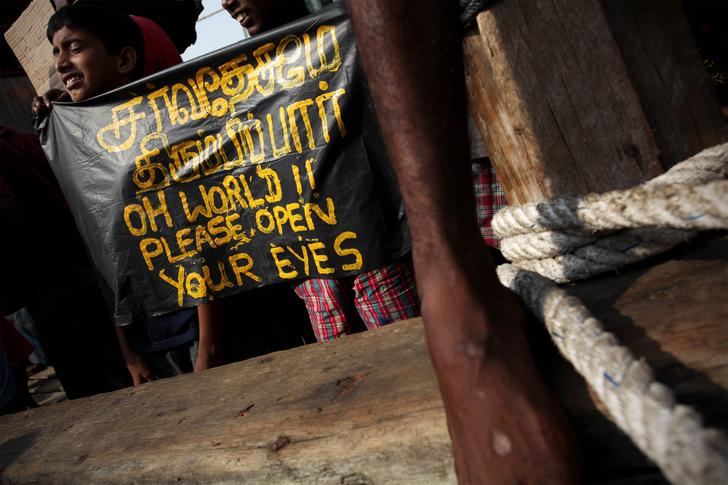
By Andrew Buncombe | The Independent
More than two dozen Sri Lankan asylum seekers arrived back in Colombo yesterday after British authorities deported them despite warnings about possible threats to their safety.
The group of 26 people, consisting largely of ethnic Tamils, were flown to Sri Lanka and met for questioning by the authorities. A police spokesman told reporters the individuals were being questioned by officers from the criminal investigations department.
The decision to deport them took place despite a staunch campaign by human rights campaigners and opposition MPs. They pointed out that while the UK Border Agency claimed there had been an improvement in the situation in Sri Lanka since the end of a civil war two years ago, just this week the Government had expressed concerns about human rights violations.
"In the light of what we know, was it wise to send these people back?" asked Labour MP Siobhain McDonagh, who had raised the plight of the Sri Lankans in Parliament.
A number of those who were returned had told the BBC's Tamil service they were concerned for their safety. One man who was due to be returned reportedly tried to kill himself this week after receiving threats. A solicitor for the man was able to obtain an emergency injunction blocking his removal and the individual is still at a British holding centre.
Amnesty International said that although the decades-long civil war had come to an end in May 2009, when the remaining fighters of the Liberation Tigers of Tamil Eelam (LTTE) were crushed, failed asylum seekers still faced risks if they were returned to the country. Hundreds of thousands of Sri Lankans fled during the war.
Yolanda Foster, a researcher for Amnesty International, said immigration barristers believed that several young men who may have been associated with the LTTE were due to be deported. The UK Border Agency did not provide a list of those who were actually forcibly removed.
"It's appalling the UK would deport people who genuinely fear persecution," she said. "The Government is aware there are cases of people being tortured after being returned to Sri Lanka."
The deportation follows the broadcast this week of a documentary by Channel 4 of what it said were war crimes committed by Sri Lankan forces during the closing stages of the military operation to defeat the LTTE. Images showed bound and naked rebel fighters apparently being summarily executed.
Following the broadcast, Foreign Office minister Alistair Burt renewed Britain's demands for an independent investigation into the final stages of the war, when thousands of Tamil civilians died. A recent UN report said there were credible allegations that war crimes were committed.
The Sri Lankan authorities have dismissed the findings of the UN report and suggested the footage in the Channel 4 documentary may not have been genuine.
© The Independent
